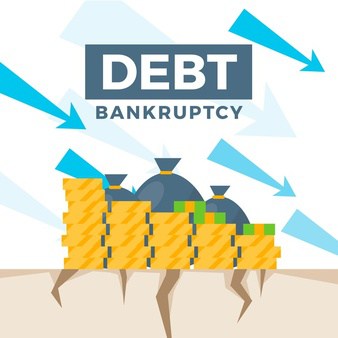If you are currently stuck in debt and seek a way out, filing for bankruptcy is your best option. Choosing the right type of bankruptcy is a crucial step in obtaining a new start. This is why before you file, consider the main reason behind your financial problem: was it due to medical expenses incurred? a job loss or lay-off? or sudden events that caught you financially unprepared?
Whatever your reasons are for filing bankruptcy, make sure that it is addressed by the right type filed in court.
Choosing Chapter 7 Bankruptcy
If you are a minimum wage earner or have little income to spare, it may be a good option to file a Chapter 7 bankruptcy. Doing so may discharge your outstanding utility and medical bills, balances in your credit cards, and personal loans.
For debts secured with collaterals, such as home and car loans, you will have to choose whether to reaffirm these by paying off your lenders thereby keeping the collateral, or letting creditors take back their security from loans.
To be an eligible filer, you must pass a means test as prescribed by the bankruptcy law.
When to File A Chapter 13 Bankruptcy
 If you have enough disposable income to pay off loans, but find it hard to keep up with your creditor’s demands, consider filing bankruptcy under Chapter 13 instead. Doing so will extend your payment schedule and divide the balance into several monthly payments. To be eligible, you must have a job that can generate enough income in the future to meet the terms of your repayment plan.
If you have enough disposable income to pay off loans, but find it hard to keep up with your creditor’s demands, consider filing bankruptcy under Chapter 13 instead. Doing so will extend your payment schedule and divide the balance into several monthly payments. To be eligible, you must have a job that can generate enough income in the future to meet the terms of your repayment plan.
Moreover, for unpaid income taxes, a Chapter 13 bankruptcy filing allows you to repay what you owe within five years, as compared to paying the full amount under a Chapter 7 bankruptcy as taxes are considered exempt from being discharged.
Making the Right Decision in A Bankruptcy Petition
Take time to know the difference between the types of bankruptcies before making your decision. Seek help from family and friends and get legal advice from an bankruptcy lawyer.
Before bringing your petition to the bankruptcy court, look out for the following signals:
- Constant creditor harassment.
Receiving repetitive calls from your creditor is tiring and threatening, especially when a lawsuit has been filed. If you’re experiencing incessant demands, consider personal bankruptcy as it can stop all lenders’ collection activities. This is because a court order, called an automatic stay, will be released after you declare bankruptcy.
- Properties or assets being seized.
Sometimes, a creditor may seize the properties of a debtor in exchange for unpaid balances. In most cases, debtors fall victim to illegal collection activities as lenders take advantage of their financial vulnerabilities.
If you want to protect your properties, consider bankruptcy. However, be ready to give up certain valuable assets. In a Chapter 7 case, your possessions are usually placed in a bankruptcy estate managed by a trustee who takes charge of auctioning properties and using the proceeds to pay back loans.
You may rest assured that there are certain assets exempted from seizure under federal and state laws. Make sure to get the list of all exempt and nonexempt properties from your bankruptcy lawyer.
- Reaching Your Credit Limit.
Declaring bankruptcy is called for when your credit cards are used mainly to pay for personal necessities. Doing so can help you wipe all credit card loans, although the bankruptcy shall reflect in your record, thereby hurting your credit score.
Regardless of the downside, remember that rebuilding your credit score is still possible by committing to pay obligations, or opening a savings account in the future.
Filing Your Chosen Bankruptcy Type
First-time petitioners in bankruptcy filings will be summoned in court to attend a meeting with creditors.
Keeping court appearances is required since you will be asked about money, property, and debt matters. This will help your bankruptcy judge decide on the details of the discharge notice. You want to receive this document as it will attest to you being free from paying certain debts.
Filers will normally have one month after filing to prepare for a court appearance. Try to devote this time consulting with a legal professional, and learning about state laws and the bankruptcy process.
Hiring a bankruptcy lawyer will work to your advantage as one will point you to the right type of bankruptcy to file, and the best possible outcome: losing fewer properties, while having most debts wiped out.
Look for a local bankruptcy attorney with years of experience working with similar clients, such as Daniela Romero from Pasadena Bankruptcy Law. Contact us to get a free consultation.
